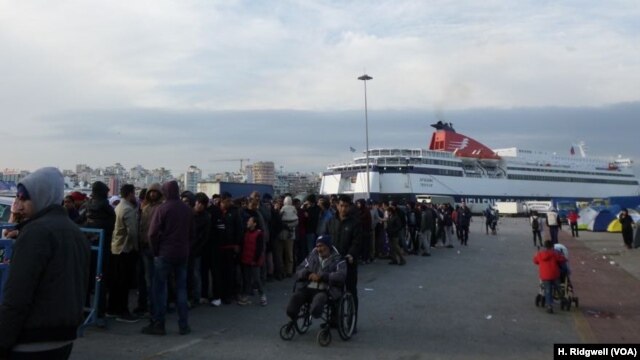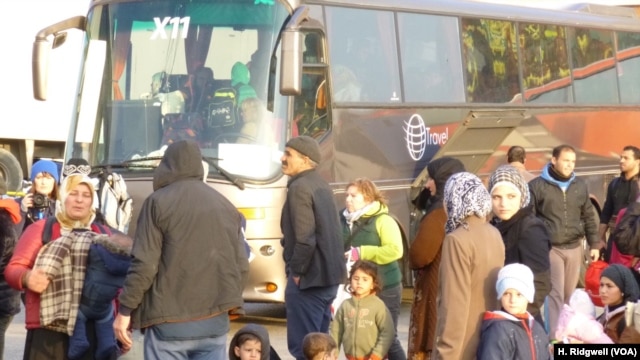News / Europe
On Greek Islands, Doubts Grow Over EU-Turkey Migrant Deal
March 20, 2016 10:19 AM
LESBOS, GREECE—
The deal struck between the European Union and Turkey to try to stem the flow of refugees comes into force Sunday, meaning new arrivals in Greece will be returned to Turkey – with the EU then taking the same number of Syrian refugees from camps on Turkish territory.
But on the Greek island of Lesbos, where most of the refugees arrive, there is growing anger at what’s seen as an immoral and unworkable deal.
A few kilometers off the coast, NATO warships and Turkish coast guard vessels patrol up and down the straits between Lesbos and Turkey. Helicopters watch from the skies. Europe and Ankara are trying to prevent a surge of refugees as the new deal comes into force.
Shoreline vigil
On the Lesbos shoreline, volunteers continue their round-the-clock vigil on the lookout for migrant boats.
“I don’t think that political decisions make a big difference for the refugees, they will come anyway. They are still willing, because they are on their trip for months or years, so they will try it,” said Samuel Radber, from the Swiss Cross volunteer group.
Like most aid workers here, Radber is scathing of the agreement between Brussels and Ankara.
“You can’t charge people like you do with goats or money. They are not numbers, they are human beings. So you can’t say ‘we send one back and take another to Europe.’ That’s not the way it works,” he said.
Several days of poor weather have prevented many boats from making the crossing. But rescue teams here believe there are hundreds, if not thousands of refugees waiting to set off.
Nearly 2,000 arrested
Turkish police say they arrested over 1,700 migrants Saturday along the coastline, along with 16 alleged smugglers.
Greece is continuing to move migrants off the islands to the mainland.
Somali refugee Abdi Yare Mousseh was waiting to take the ferry to the city of Kavala Saturday.
Somali refugee Abdi Yare Mousseh was waiting to take the ferry to the city of Kavala Saturday.
"I know a lot of friends in Istanbul who need to come," Mousseh said. "But it is not easy, it is very hard. Some people are crying. Some people are in the jail. Me, six days arrested by Turkish police. He took photos and fingerprints. [Then] I tried to come again [to Lesbos].”
Rumors are circulating across the refugee camps of deportations to Turkey dependent on nationality.
Despite assurances from Brussels of fair treatment for refugees, on the frontline of the crisis there are doubts the plan is either workable or legal.




No comments:
Post a Comment